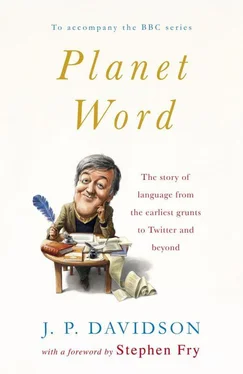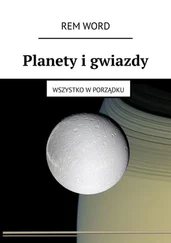CR : I think it’s always having to do both. I think poetry is very like ordinary life. It’s continually wanting some arrangement of things that are new and surprising to it. It’s continually interested in the fulfilment of expectations and in the arrival of surprise.
SF : Yes. You want to be surprised but you also want the comfort of reassurance that you know them.
CR : The poet Donald Davy talks about how the words of a poem should succeed one another like the events of a well-told story. They should be at once surprising and just. That is, it’s easy to be surprised if you don’t care whether the effect is a just one. It’s easy to be just if you don’t care whether it’s surprising. Bob Dylan loves rhyming ‘new’ and ‘true’ because every artist is in the business of finding something new to say that is also true. It’s easy to find something new to say. It’s easy to find something true to say but these people come up with very extraordinary things that are at once new and true.
SF : Again it suggests the Eliot line in the ‘Four Quartets’ about arriving at a place and seeing it for the first time. There is this sense in poetry and even in just great writing of being in a familiar place and being assured by the authority of a writer that you trust them and yet also being surprised by them because they make you look with new eyes and things. And is that something that you think is innate in that there is a certain class of person who can do this and they do it with words when someone else might do it with music?
CR : Dr Johnson believed that there were talents and you employed them in any way that struck you. It’s as if you were at the North Pole and you could walk south in many different directions. But what you do is essentially exactly the same, you walk south. On the other hand some people are amazingly numerate. They can look at a spreadsheet and see that the figures have been rigged and fixed. They can see that the books are being cooked. I could look at equations and symbols and numbers for ever and be blank. What about you?
SF : I’m exactly the same. I don’t understand. And as you say some people are like a spider on the web — every twitch of the filament means something to them. And they can chase it down. So yes there is the gift of language.
CR : Well, I think poets are really intelligent, and resourceful poets are much less vulnerable than you might think because their self criticism is alive to what might be the criticism of others. Pretty well all great writing has a warning about over-valuing writing in it. At some point or other Shakespeare will tell you not that plays or dramatic representations tell no truths but that you must remember they also tell lies. And so words half reveal and half conceal the truth within. And every great writer has intimated some such things at some point.
SF : I think that’s absolutely right. Language is a bit like a dress. A dress can reveal the form, can flatter the form, can exaggerate the form, can give a real sense of the beauty and elegance of a particular form but it also hides deformities. It also masks and covers nudity; covers the passionate side of us, our fleshly side. And words are constantly doing that.
There’s also this idea that there’s great literature: Leavis and his great tradition and Harold Bloom and his sense of the canon of writers, but can they include in that twentieth- and twenty-first-century figures from what is often called popular culture — like Bob Dylan who you’ve written about?
CR : I think Dylan uses words with extraordinary effect. The effect is related to a different system of punctuation — the speed and pace at which it goes is determined by him, his music and his voice. He changes those and the beautiful thing he says about the songs is, my songs lead their own lives, and it’s lives in the plural not because each song has a life but because each song has lots of lives. I think again and again Dylan is very good when you can imagine an unimaginative creative writing school telling him he’d got it wrong. I think that he’s simply astonishingly imaginative with words.
Funeral Blues
Stop all the clocks, cut off the telephone,
Prevent the dog from barking with a juicy bone,
Silence the pianos and with muffled drum
Bring out the coffin, let the mourners come.
Let aeroplanes circle moaning overhead
Scribbling on the sky the message He is Dead.
Put crepe bows round the white necks of the public doves,
Let the traffic policemen wear black cotton gloves.
He was my North, my South, my East and West,
My working week and my Sunday rest,
My noon, my midnight, my talk, my song;
I thought that love would last forever: I was wrong.
The stars are not wanted now; put out every one,
Pack up the moon and dismantle the sun,
Pour away the ocean and sweep up the wood;
For nothing now can ever come to any good.
That poem was written by W. H. Auden, but you may well know it better from the film Four Weddings and a Funeral , where it was recited during the funeral of the title. It’s extraordinary how something can have such impact, be so succinct and have such emotional truth behind it.
For anyone who’s had to organize a funeral, the choice of words is one of the most difficult things to get right. In the past, the traditional funeral passages from the King James Bible had little competition. But in our more secular times many prefer not to invoke religion at all. So what do we do when we want to express the grief and love and sadness of the loss of someone? Music is integral, and, if it’s right, the emotional heft will inevitably lead to tears.
So what led Four Weddings scriptwriter Richard Curtis to choose the Auden poem for the funeral scene, a choice which catapulted sales of Auden’s poetry beyond anything he’d enjoyed while still alive?
Richard explains with his unfailing modesty that he didn’t feel up to the job.
‘Tragically in my life, in every film I’ve ever done, the single best moment in the film has nothing to do with me at all. I was writing a moving funeral scene so I thought I’d better leave it to a better man. I’d always been told I should study Auden and I didn’t understand most of his poems. And I remember being very thrilled when I came across that one. And I think it’s no coincidence that it’s in fact called ‘Funeral Blues’ and it’s a lyric; it was meant to be sung. And that is symptomatic of the fact that I’m passionate about lyrics in a way more than poems.’
It’s become the thing to choose songs rather hymns or prayers at funerals. ‘I Did It My Way’, ‘Je Ne Regrette Rien’ or ‘Angels’ may be a bit clichéd, but people clearly feel their lyrics do the job better than a poem or a reading. They can express a communal emotion that everybody can share.
Richard has a theory that we don’t have access to poems now in the way we once did. The Romantic poets were celebrities in their day. People were outraged by the work of Byron because they knew about him, he was famous. Nowadays it’s hard for a poem to break through into the popular culture, so what happened with Four Weddings was a rare example of a poem being heard by enough people to get a passionate reaction.
Poems are often perfect word for word, pop lyrics less so, although, as Richard is keen to point out, there are some wonderful wordsmiths in the world of pop lyrics. He cites Paul Simon as one lyricist who has written some extraordinary, powerful songs.
‘Every day I think of that line from “The Boxer”: “A man hears what he wants to hear and disregards the rest.” And it lodges in your head, and as you go through life you realize people are only hearing a bit of what you say because it’s the bit that suits them. Rufus Wainwright’s song “Dinner At Eight” is about him and his father, and there is no finer expression of the argument between a son and a father who abandoned him. And there are the huge, big popular ones that everybody knows. They become the fabric of your life, and those lyrics are carried around with you and reflect your moods and feelings.’
Читать дальше












